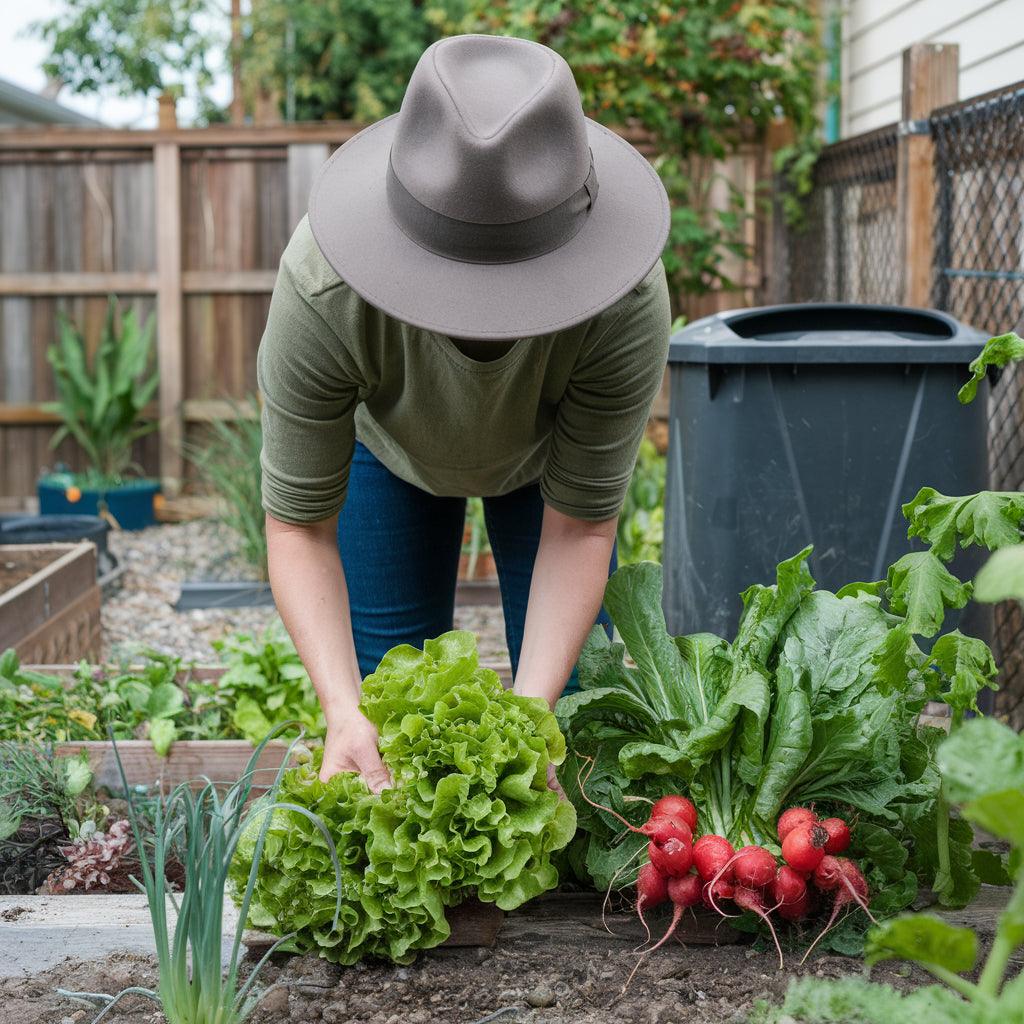
Knowing How to Farm
In a world increasingly dependent on complex supply chains and global markets, the ability to farm and produce your own food has never been more important. This skill not only ensures self-sufficiency but also contributes to healthier eating habits, environmental sustainability, and resilience in the face of economic or social disruptions. Whether you live in a rural area with ample space or in an urban setting with limited resources, learning how to grow your own food can be a rewarding and practical endeavor. And may even save you & your family’s lives one day.
- Self-Sufficiency and Food Security: Understanding how to grow your own food provides a sense of independence and security. In times of crisis—be it economic downturns, natural disasters, or pandemics—access to fresh, homegrown food can alleviate the stress of food shortages or ever inflating prices.
- Health and Nutrition: Homegrown produce is often richer in nutrients compared to store-bought counterparts. This is because fruits and vegetables that travel long distances to reach your local grocery store are usually picked before they fully ripen, diminishing their nutritional value. By growing your own food, you can harvest at peak ripeness, ensuring maximum flavor and nutrients within!
- Environmental Impact: Producing your own food reduces your carbon footprint. It eliminates the need for transportation, packaging, and chemical fertilizers, which are often associated with industrial agriculture. By practicing organic farming methods and using compost from kitchen waste, you can contribute to soil health and promote biodiversity in your immediate environment.
- Economic Savings: While there might be initial costs involved in setting up a garden, the long-term benefits include significant savings on grocery bills. Seeds, once purchased, can yield produce that not only feeds your household but also generates more seeds for future planting.
- Skill Development and Mental Well-being: Gardening and farming are skills that enhance patience, resilience, and problem-solving. The process of nurturing a seed to maturity is both meditative and fulfilling, providing a sense of accomplishment and a direct connection to nature.
If you're starting from scratch and need to grow food quickly, we need to review several essential considerations to keep in mind:
- Choosing Fast-Growing Crops: Some crops grow faster than others and are ideal if your looking to establish a food source quickly. Examples include radishes, lettuce, spinach, kale, and green onions, which can be ready for harvest in as little as 20 to 40 days.
- Soil Quality: Good soil is the foundation of any successful garden. Ensuring your soil is rich in organic matter and has the right pH balance will promote faster growth. Adding compost, manure, or organic fertilizers can boost nutrient levels and soil structure.
- Watering and Sunlight: Most vegetables require at least 6 hours of sunlight per day and consistent watering. Inadequate light or water can stunt growth and reduce yields. Drip irrigation or soaker hoses can be efficient methods to ensure plants receive the right amount of water.
- Container Gardening: If space is limited, growing in containers is a practical solution. Choose deep pots, bins or raised beds to accommodate root systems and ensure good drainage to prevent water logging the roots/soil.
- Succession Planting: To maximize yield, practice succession planting—planting a new crop immediately after the previous one has been harvested. This method ensures a continuous supply of fresh produce and means you always have a food source growing!
Starting from seeds, the time required to grow enough food to sustain oneself can vary greatly depending on the crops chosen, the growing conditions, and available resources. Typically, leafy greens and quick-growing vegetables can be harvested within 20 to 60 days. However, for staple crops like potatoes, carrots, or tomatoes, the growing period can extend to 70 to 120 days or more. To achieve a well-rounded, sustainable food supply, consider a mix of fast-growing vegetables and longer-season crops, alongside perennial plants like berries or herbs.
For a single person to be self-sustaining, it is advisable to have a well-planned garden that utilizes the space efficiently, growing a variety of vegetables, fruits, and herbs that mature at different times, ensuring a continuous and varied food supply throughout the growing season.
- Vertical Gardening: Ideal for small spaces, vertical gardening involves growing plants upward using trellises, wall-mounted planters, or hanging pots. This method is particularly effective for vine crops like tomatoes, cucumbers, and beans.
- Hydroponics: Growing plants without soil, hydroponics uses nutrient-rich water solutions to cultivate crops. This method can be particularly efficient in urban settings with limited outdoor space. Simple hydroponic systems can be built with basic materials, such as PVC pipes, a water pump, and grow lights.
- Window Boxes and Balcony Gardens: For apartment dwellers, window boxes or balcony gardens offer a viable solution for growing herbs, lettuce, strawberries, and other compact plants. Ensure containers have proper drainage and are positioned to receive adequate sunlight.
- Community Gardens: If space at home is severely limited, consider joining a community garden. These shared spaces provide plots for individuals to grow their food while fostering a sense of community and shared learning.
- Micro-greens and Sprouts: For immediate results, consider growing micro-greens or sprouts. These can be grown indoors in trays or jars and are ready to harvest in a week or two. They provide a quick, nutritious boost to meals and require minimal space and resources.
In today's world, the importance of knowing how to grow your own food cannot be overstated. It offers independence, promotes health, and supports sustainability. Whether you have a sprawling backyard or a small balcony, there are numerous ways to start growing food with limited resources. By cultivating these essential skills, you enhance your own resilience and ensure you are nutritionally ready to face any challenge!
